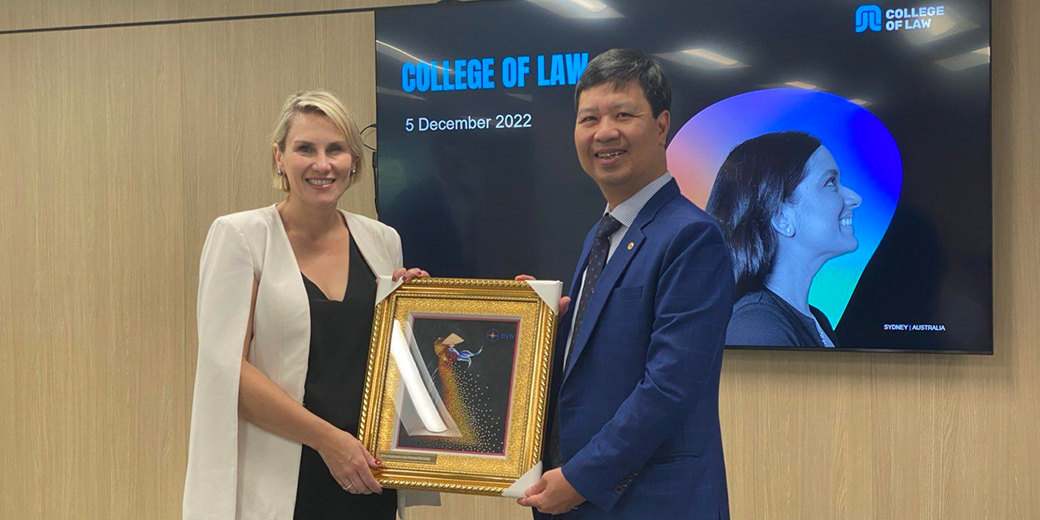It’s a question that everyone wants answered. How do you transcend the daily grind to do work you love? When can a career become a calling? What steps can you take to achieve the career you want?
We spoke to John Poulsen, former CEO of Squire Patton Boggs and Principal of People Passion Performance, for his insights informed by an illustrious career in law and leadership. John Poulsen was instrumental in Minter Ellison’s ‘go global’ strategy, which resulted in the firm joining Squires, and becoming one of the fastest-growing law firms in Australia. As Principal of People Passion Performance, John works closely with leaders to create a culture where people and organisations thrive.
Top 3 tips to get the career you want
Getting the career you want can’t happen by accident. It requires intrinsic drive, self-examination and a willingness to reflect and adapt.
John Poulsen has three tips for achieving the career you want:
- Discover your WHY
- Know your values
- Understand your strengths and blind spots
Tip 1: Discover your WHY
“Understanding your purpose is essential,” John says. “Your deeper purpose will usually be more than just about making money. Simon Sinek’s ‘Starting with Why’ concept encourages you to find what drives you at your core. When you look within yourself it will usually be linked to making a difference for others. When you align your career with your WHY, work becomes meaningful, and you stay motivated even during challenges.”
Tip 2: Know your values
“Use the Barrett Values Model to gain clarity on your personal values,” John advises. “These are the principles that guide your decisions and actions. When your career aligns with your values, you feel more fulfilled and authentic in what you do.”
Tip 3: Understand your strengths and blind spots
“Leverage tools like the CliftonStrengths assessment to identify your unique talents and where you might need support,” John says. “This awareness allows you to harness your strengths effectively while addressing areas for growth, ensuring you're constantly evolving in your career.”
Embrace your ‘Personal Plan on a Page’
“I have developed a ‘Personal Plan on a Page’ which I use to help people I coach to find the career they truly want,” John Poulsen. “I also ask them to paint a holistic vision of where they want to be in a relevant time frame. This includes considering physical, mental and spiritual wellbeing.”
An example of John Poulsen’s ‘Personal Plan on a Page’ is below.
Personal Plan on a Page 2024-2026
|
WHY? My deep purpose |
To:
|
|||||||
|
VISION My aspirations for 2026 |
By 2026 to: ● ● |
|||||||
|
VALUES My beliefs and behaviours |
#
|
#
|
#
|
#
|
#
|
|||
|
KEY STRENGTHS Clifton StrengthsFinder |
|
|
|
|
|
|||
|
STRATEGIES Actionable focus areas to achieve my Vision |
Selfcare
|
#
|
#
|
# |
||||
|
Priority Actions Actions to support my strategies |
||||||||
|
Measuring Success Metrics |
▪ |
▪ |
▪ |
▪ |
||||
Nailing your Performance Review to progress your career
Performance reviews provide a crucial checkpoint to advance your career. However, they aren’t always easy.
“To make the most of a performance review, preparation is key, especially for lawyers aiming to progress their careers,” John advises.
To effectively prepare ahead of a performance review, John suggests lawyers consider the following approaches.
Tip 1: Clarify your goals
“Before the review, reflect on your career aspirations,” John says. “Be clear about the direction you want to take, whether it’s specialisation, leadership, or developing new skills. This ensures your feedback is relevant to your long-term goals. The ‘Personal Plan on a Page’ I refer to above is a very helpful tool to do this.”
Tip 2: Document achievements
“Compile a record of your accomplishments over the review period, including what you have achieved for teams and clients you work with, your relationship building, your productivity, your knowledge management and your overall contribution to the fabric of the organisation,” John advises. “Quantify your impact wherever possible to provide concrete evidence of your value.”
Tip 3: Solicit feedback early
“Seek feedback from peers and supervisors ahead of time,” John says. “This allows you to address any issues proactively and ensures you’re aligned with expectations.”
Tip 4: Identify how you want to learn and grow
“Identify specific areas you want to develop, such as leadership skills or expertise in a new legal area,” John suggests. “Ask for guidance on how to bridge these gaps and seek opportunities for mentoring or training.”
When to make a move: Signs you're ready for a Career Change
When considering a move, lawyers should first reflect on their values and career goals and whether their current role aligns with those values and objectives.
“Ask yourself: Are you still learning and growing? If the role no longer challenges you, or if opportunities for development and leadership are limited, it may be time to move,” John says. “Consider your values and whether the organisation still supports them. Alignment with your purpose and values is crucial for long-term satisfaction.”
John suggests using the ‘Personal Plan on a Page’ as a helpful tool to decide whether it may be time for a change.
“Lastly, assess your skills and strengths. If you’ve mastered your current role and feel unfulfilled, it’s a sign you may have outgrown it. Seek roles where you can leverage your strengths while gaining new skills that align with your career direction.”
Taking the initiative: Proactive steps for Career Growth
According to John, lawyers can take several proactive steps to progress their careers.
Step 1: Continuous learning
“Invest in ongoing professional development through legal training, certifications, or seminars to stay updated with industry trends and emerging legal areas,” John advises. “Focus on developing your ‘soft skills’ such as empathy, deep listening, communication, negotiation, teamwork, leadership and conflict resolution.”
Step 2: Seek strategic opportunities
“Volunteer for high-visibility projects or cases that align with your career goals,” John says. “Taking on complex or high-impact work can demonstrate your leadership potential and willingness to go beyond your comfort zone.”
Step 3: Build a network
“Actively engage in networking opportunities, both within and outside your firm,” John suggests. “Cultivate relationships with potential clients, industry peers, and mentors. Strong networks are invaluable for future career advancement and business development.”
Step 4: Mentorship
“Seek out mentors and offer to mentor others,” John says. “This allows for valuable exchange of knowledge, and mentorship can open doors to new opportunities.”
Step 5: Prioritise mental, physical and spiritual health
“Looking after your emotional, physical, and spiritual health is essential for overall well-being and balance,” John says. “Prioritise self-care through regular exercise, meditation/mindfulness, and connecting with your inner values or purpose. This to me is the number one focus if you want joy in your life.”
About John Poulsen
John is the Principal of People, Passion & Performance and has deep ʻhands onʼ experience in creating and developing workplaces where people have a shared vision and purpose, so that the people thrive and the organisation flourishes sustainably.
John's purpose in life is to help those in his sphere of influence to find deeper purpose, meaning and joy in their life. His key focus is helping people transform through the lens of values. He coaches and mentorsʼ leaders and emerging leaders to live without fear and to develop and enhance their people skills, so that they fully motivate, engage and empower their people to succeed in these volatile, uncertain, complex and ambiguous times.
John also helps leaders to develop and implement cultural change projects and to develop values that have meaning to the organisation. He speaks on leadership, organisational change and has a passion for assisting organisations to build mentally healthy workplaces.
As a CTT Certified Consultant, John uses the tools and resources from Barrett Values Centre to support his clients in their personal, leadership and cultural transformation. The tools define an actionable road map that becomes an integral part of a leader's personal development plan and business strategy.
John was until 31 December 2017, the Australian Managing Partner and CEO of Squire Patton Boggs, a top 10 Global Law Firm with offices in Perth, Sydney and Darwin. Before that he was a Finance lawyer and the Managing Partner of Minter Ellison in Perth.
Coaching Qualifications/Accreditations
- Accredited Barrett Values Centre Consultant and Coach https://www.valuescentre.com/
- Accredited Corporate Evolution Facilitator (Transformation through the Lens of Values)


































































































